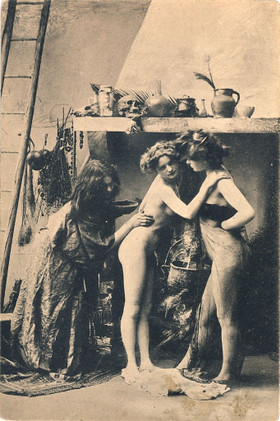Sturgeon's Law? (Nine tenths of anything is crap?)
When I read your post, my immediate reaction was "Yes, he's right, why did I never think of that?"
On further reflection, though, I suspect that Sturgeon's Law has a large part to play and the the reason why f/64 vs. pictorialism was so poisonous and vituperative was because both were being superseded by 'miniature' cameras (including Rolleis as well as Leicas) so they were fighting a rearguard action. It's a bit like the Life of Brian: the Judaean People's Liberation Front and the People's Liberation Front of Judaea fighting each other more than the Romans.
Consider Erich Salomon and his Ermanox, before, I think, even 1920. Both f/64 and pictorialism were idealizations, in different ways, whereas Salomon (and of course HCB later) were not. Or if they were, they were a completely different idealization.
Cheers,
R.









